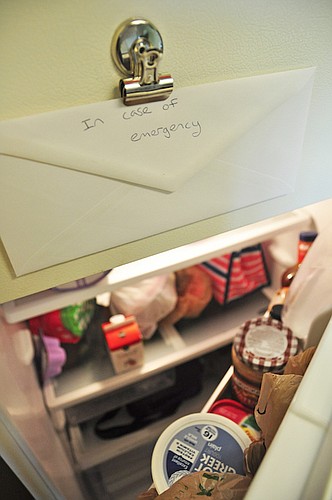- January 14, 2025
-
-
Loading

Loading

Caring for a loved one is complex. To help you out, we offer some tips for caregivers and friends of caregivers. This is just a fraction of information to help you. Check out the resources at the end for more. We will also have more tips in next month’s column.
Get organized
Assemble your team. Figure out who can and will help. Some help just by listening and giving support. Some help by visiting your loved one. If you are a baby boomer, you probably know someone else who is a caregiver. Reach out to him or her. Experienced professional caregivers, like home health aides or certified nursing assistants, can also provide plenty of good information. It takes a village.
Prepare for unexpected events. Write key information on one page with contacts names and numbers, diagnoses, medications, providers, allergies, insurance and anything else that might be relevant. Put it in an envelope marked “KEY INFO” or “ICE (in case of emergency)” on the refrigerator. Tape a piece of paper with the primary caregiver cell number on the inside of the door.
Simplify the administrative work of caregiving as much as possible. A separate credit card for medical expenses and online bill payer systems makes recordkeeping easier.
Sometimes less is more. Getting the right level of care, with a provider who listens and understands you and your caree’s wishes can be a challenge. Like Goldilocks’ search for the right chair, you have to try different ones to find the right fit, the one that is “just right.” Frank discussions can clarify what the goals of care should be.
Avoid falls
Gravity is not a friend to the frail but some modifications can reduce fall risks. Remove throw rugs. Maybe they are called throw rugs because they throw you to the ground. Remove cords that are in the path of walking. Rearrange furniture for comfort and safety. Put the TV in view of a stable chair with arms.
An alert button system can connect with help 24/7 (for initial charges and monthly fees). The alarms are worn on the wrist and usually look like large watches. Alarms worn around the neck are not such a good idea; they can strangle the person in a fall. Alarms with dead batteries don’t help. Check the alarm at least every six months, like when the clocks change.
Ease vision and hearing loss
Thick markers can make notes and signs easier for the vision impaired. “Bump dots” can show which button to push. Keep the brain and heart engaged; the National Library Service for the Blind and Physically Handicapped (NLS) mails audible books and movies with narration to those with vision or other problems impairing reading ability (visit www.loc.gov/nls).
Hearing problems can make phone communication difficult. Those with hearing loss can get an amplifying phone at no cost (visit www.ftri.org or call 800-222-3448).
Keep dry
Ordering adult briefs online for home delivery is easier than carrying the bulky bags from the store each week. Comparison shop: prices vary greatly. Waterproof mattress pads and washable under pads can facilitate easier cleanups and prevent funky mattress odors. Dark pants hide stains, spills, and leaks better than light colored pants.
Benefit from local events and resources
The Neighbors Network (neighborsnetworkfl.org or 321-209-2775) helps those 55 and older with services and support to facilitate living in the community “with a little help from their friends.”
AARP Florida is hosting a caregiving workshop on helping someone navigate health care on Saturday, Feb. 25, from 8:30 a.m. to 12:30 p.m. at the Orlando Science Center.
The Senior Resource Alliance can provide information, resources, and services you may need. (Visit www.seniorresourcealliance.org or call 407-514-1800.)
AARP.org/caregiving is a great starting place for online information, tools, and support
Dr. Nancy Rudner, local workplace nurse coach with HealthAction.biz, was a caregiver for several years and learned many tips from kind people along the way. Send your questions to [email protected]